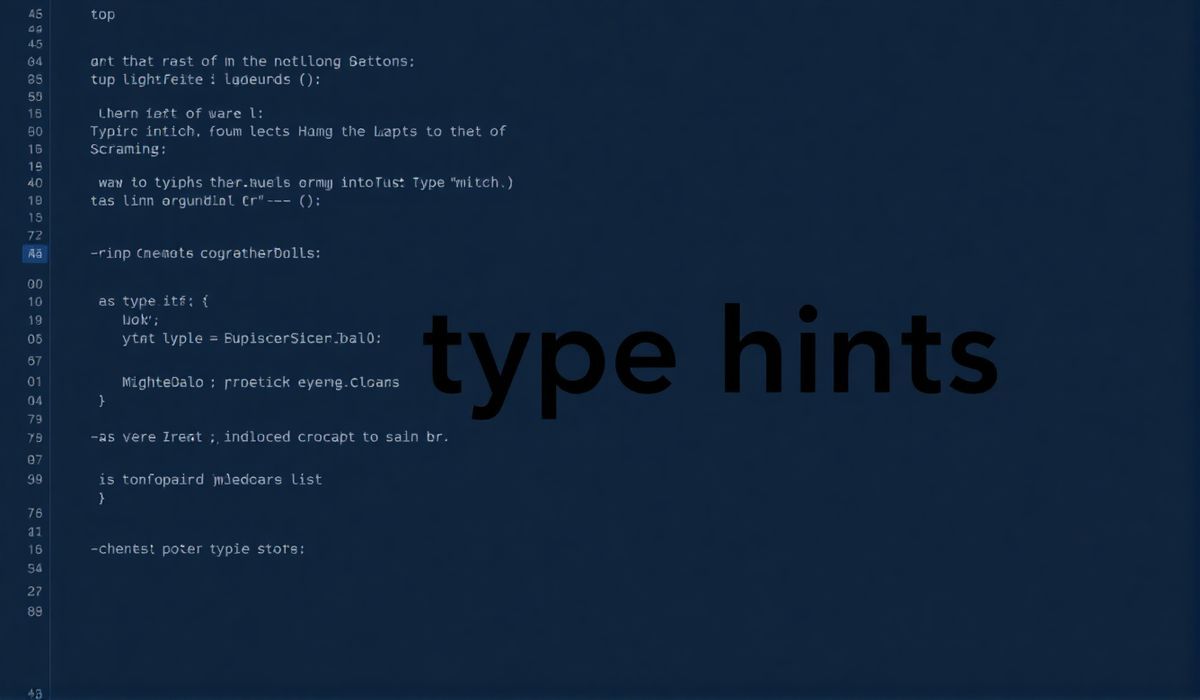Unlock the Power of Typing Extensions in Python
The typing-extensions module is an essential library for Python developers who need advanced type hinting capabilities. It bridges the gap between current Python releases and the latest typing features introduced in newer Python versions. Whether you’re developing applications or libraries, typing-extensions improves code readability, maintainability, and safety.
Understanding Typing Extensions
The typing-extensions module serves as a backport of types from the standard typing module. This means you get access to experimental and future-compatible typing features even if you’re using an older version of Python. It enables seamless integration between various Python versions and ensures better type-checking with tools like mypy and Pyright. Below, we introduce the core APIs of typing-extensions, complete with actionable examples.
Key APIs and Examples
1. Literal
The Literal type allows you to specify exact values a variable can have.
from typing_extensions import Literal
def take_color(color: Literal['red', 'green', 'blue']) -> str:
return f"You selected: {color}"
print(take_color('red')) # Valid
# print(take_color('yellow')) # Raises a type error
2. TypedDict
TypedDict provides type hints for dictionaries with specific key-value pairs.
from typing_extensions import TypedDict
class Book(TypedDict):
title: str
author: str
year: int
def print_book_details(book: Book) -> None:
print(f"{book['title']} by {book['author']} ({book['year']})")
my_book: Book = {'title': '1984', 'author': 'George Orwell', 'year': 1949}
print_book_details(my_book)
3. Protocol
The Protocol type enforces structural subtyping, making it useful for dependency injection.
from typing_extensions import Protocol
class Animal(Protocol):
def speak(self) -> str: ...
class Dog:
def speak(self) -> str:
return "Woof!"
def animal_sound(animal: Animal) -> str:
return animal.speak()
dog = Dog()
print(animal_sound(dog)) # Outputs: Woof!
4. @final
Use the @final decorator to prevent method or class inheritance.
from typing_extensions import final
@final
class ImmutableClass:
...
# class SubClass(ImmutableClass): # Raises error due to @final decorator
...
5. Concatenate and ParamSpec
ParamSpec and Concatenate allow advanced type-hinting in decorators and higher-order functions.
from typing_extensions import ParamSpec, Concatenate
from typing import Callable
P = ParamSpec("P")
def logger(func: Callable[Concatenate[str, P], None]):
def wrapper(prefix: str, *args, **kwargs) -> None:
print(f"{prefix}: {args}, {kwargs}")
func(*args, **kwargs)
return wrapper
@logger
def greet(prefix: str, name: str) -> None:
print(f"Hello, {name}")
greet("Info", "John")
App Example Using Typing Extensions
Here’s a simple inventory management app leveraging TypedDict and Protocol for type safety.
from typing_extensions import TypedDict, Protocol
from typing import List
class Product(TypedDict):
id: int
name: str
price: float
class InventoryManager(Protocol):
def add_product(self, product: Product) -> None: ...
def list_products(self) -> List[Product]: ...
class SimpleInventory:
products: List[Product] = []
def add_product(self, product: Product) -> None:
self.products.append(product)
def list_products(self) -> List[Product]:
return self.products
inventory = SimpleInventory()
inventory.add_product({'id': 1, 'name': 'Laptop', 'price': 999.99})
inventory.add_product({'id': 2, 'name': 'Smartphone', 'price': 599.99})
for product in inventory.list_products():
print(f"{product['name']} - ${product['price']}")
Conclusion
The typing-extensions module is a game-changer for developers working with type hints in Python. It ensures compatibility, extends functionality, and significantly improves the development experience, making Python code more predictable and robust. By integrating typing-extensions into your projects, you can leverage the power of advanced type annotations to create more reliable and maintainable codebases!




